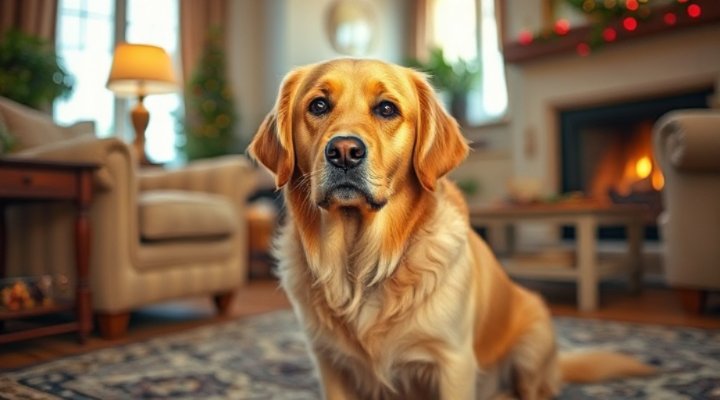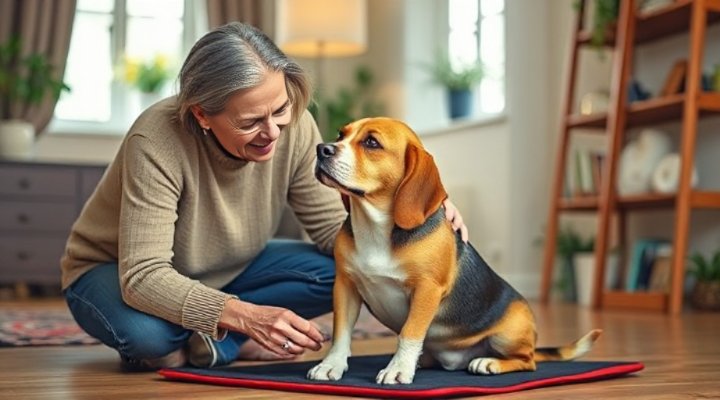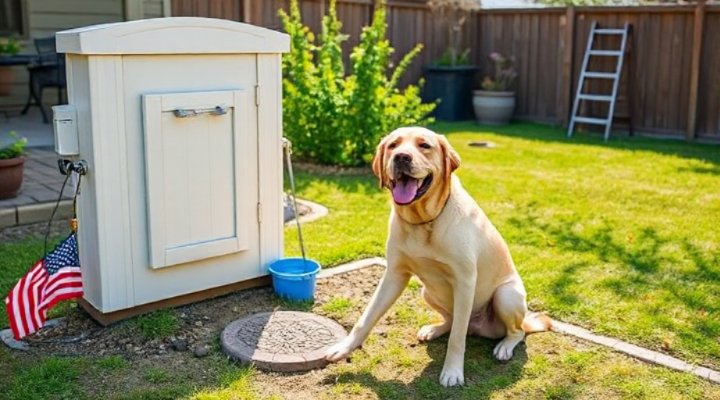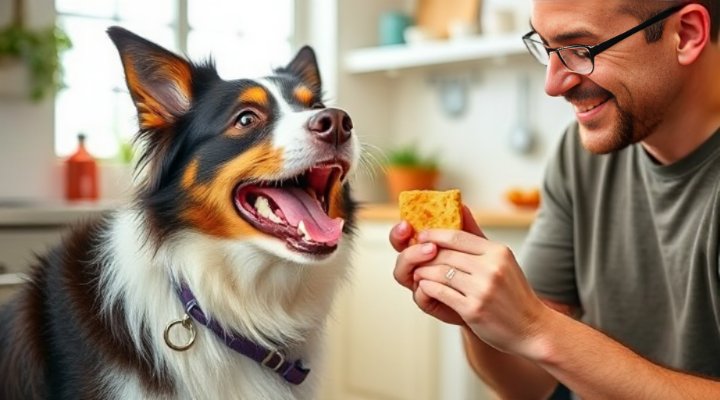House training an older dog might seem daunting, but with patience and the right techniques, it’s entirely achievable. Whether you’ve adopted an adult dog or your senior pup needs a refresher, this guide will walk you through every step of the process.
Understanding Your Older Dog’s Needs
First and foremost, it’s crucial to understand that house training an older dog differs from training a puppy. Adult dogs may have established habits, both good and bad, that need addressing. For instance, some older dogs might have never been properly house trained, while others may have developed issues due to health problems or changes in their environment.

That is to say, before beginning any training program, consider your dog’s physical health. Conditions like arthritis or urinary tract infections can make house training more challenging. A visit to the vet should always be your first step when house training an older dog.
Establishing a Routine
Consistency is key when house training an older dog. Dogs thrive on routine, and establishing a regular schedule for meals, potty breaks, and walks will significantly help the training process. For example, take your dog out first thing in the morning, after meals, and before bedtime.
Moreover, our article on Housebreaking an Adult Dog offers additional insights into creating effective routines. Meanwhile, keep in mind that older dogs might need more frequent bathroom breaks than younger ones.

Positive Reinforcement Techniques
Above all, positive reinforcement works wonders when house training an older dog. Reward your dog immediately after they eliminate in the correct spot with treats, praise, or a short play session. This creates a positive association with the desired behavior.
Similarly, avoid punishment for accidents. Older dogs might not connect the punishment with their actions, especially if some time has passed. Instead, focus on preventing accidents by supervising your dog closely and interrupting them with a gentle ‘no’ if you catch them in the act, then immediately taking them to the correct spot.
Crate Training for Older Dogs
Many people assume crate training is only for puppies, but it can be equally effective when house training an older dog. Dogs naturally avoid soiling their sleeping area, making a crate a valuable tool for preventing accidents when you can’t supervise.
For more detailed guidance, check out our comprehensive Crate Training an Older Dog guide. Remember to introduce the crate gradually and make it a positive space with comfortable bedding and occasional treats.

Dealing with Setbacks
During the house training process, setbacks are normal, especially with older dogs. Health issues, stress, or changes in routine can cause temporary regression. The American Kennel Club’s guide on housetraining adult dogs provides excellent additional resources for troubleshooting common problems.
Most importantly, stay patient and consistent. Celebrate small victories and understand that house training an older dog might take longer than with a puppy, but the results are equally rewarding.

Advanced Techniques for Stubborn Cases
For particularly challenging cases of house training an older dog, you might need to employ more advanced techniques. Bell training, where your dog learns to ring a bell to signal they need to go out, can be highly effective. Similarly, using pheromone sprays or consulting with a professional trainer might help in persistent cases.
Our article on Training an Older Dog offers more specialized advice for difficult situations. Likewise, remember that every dog is unique, and what works for one might not work for another.
Final Thoughts
In conclusion, house training an older dog requires patience, consistency, and understanding. While the process might present challenges, the bond you’ll build with your dog through this training is invaluable. With time and positive reinforcement, your older dog can learn proper house manners just as well as any puppy.
For further reading, explore our related articles on Rescue Dog Training and House Training a Dog.
Related Keywords: house training adult dog, older dog potty training, how to house train an older dog, adult dog housebreaking, house training senior dogs
